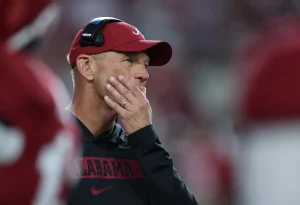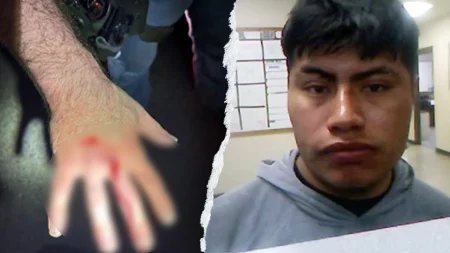President Yoon Suk Yeol of South Korea finds himself embroiled in a deepening political crisis, facing relentless pressure from both the opposition and factions within his own party. His defiant response, a vow to “fight to the end,” underscores the gravity of the situation and sets the stage for a protracted power struggle with potentially significant consequences for the country’s political landscape. The opposition’s impeachment drive, fueled by allegations of corruption and incompetence, coupled with calls for resignation from within his own People Power Party (PPP), paints a picture of a president increasingly isolated and struggling to maintain control. Understanding the complexities of this unfolding drama requires a closer examination of the underlying factors driving the opposition’s offensive, the internal divisions within the PPP, and the potential ramifications of this political showdown.
The opposition’s impeachment push is rooted in a confluence of factors, including accusations of corruption related to land development deals, criticisms of Yoon’s handling of the Itaewon crowd crush tragedy, and concerns about his perceived authoritarian tendencies. The opposition parties, led by the Democratic Party of Korea (DPK), argue that Yoon’s actions and policies represent a betrayal of the public trust and warrant his removal from office. They point to alleged irregularities in land development projects involving Yoon’s family members as evidence of corruption, and they criticize his administration’s response to the Itaewon tragedy as inadequate and insensitive. Furthermore, they accuse Yoon of stifling dissent and undermining democratic institutions, citing instances of crackdowns on critical media and civil society organizations. These accumulated grievances have coalesced into a concerted effort to impeach the president, a move that, if successful, would mark a significant turning point in South Korean politics.
Adding to Yoon’s woes are the growing fissures within his own party. While the PPP officially holds a majority in the National Assembly, internal divisions and dissenting voices have emerged, challenging Yoon’s leadership and even calling for his resignation. Some within the PPP express concerns about Yoon’s declining approval ratings, which have plummeted amid the ongoing controversies. They fear that his continued leadership could jeopardize the party’s prospects in future elections. Others criticize his political style, arguing that his hardline approach and confrontational rhetoric have alienated potential allies and exacerbated political polarization. This internal dissent weakens Yoon’s position and makes him more vulnerable to the opposition’s attacks, further complicating his efforts to navigate the political storm.
The potential consequences of this political showdown are far-reaching and could have a lasting impact on South Korea’s political stability and trajectory. A successful impeachment would trigger a complex constitutional process, ultimately leading to a presidential election. This would plunge the country into a period of uncertainty and potentially disrupt ongoing policy initiatives. Even if the impeachment attempt fails, the prolonged political battle could further erode public trust in government and exacerbate existing societal divisions. The ongoing struggle between the president, the opposition, and factions within his own party has the potential to create a climate of political paralysis, hindering the government’s ability to address pressing domestic and international challenges.
Yoon’s defiant stance, his vow to “fight to the end,” suggests that he is not prepared to concede to the demands of his opponents. He likely believes that he can weather the storm and emerge victorious, perhaps by rallying support within his party and appealing directly to the public. However, his strategy carries significant risks. A protracted and increasingly bitter political battle could further damage his reputation and weaken his ability to govern effectively. Moreover, it could deepen the divisions within the PPP and lead to a more fragmented political landscape, making it even more difficult to achieve consensus on critical issues.
The unfolding political crisis in South Korea presents a complex and dynamic situation with no easy solutions. The opposition’s impeachment drive, coupled with internal dissent within the ruling party, has placed President Yoon in a precarious position. His defiant response signals a determination to fight for his political survival, but the outcome remains uncertain. The ongoing power struggle has the potential to reshape the country’s political landscape, with significant implications for its future stability and direction. The coming weeks and months will be crucial in determining the ultimate fate of President Yoon and the direction of South Korean politics.






